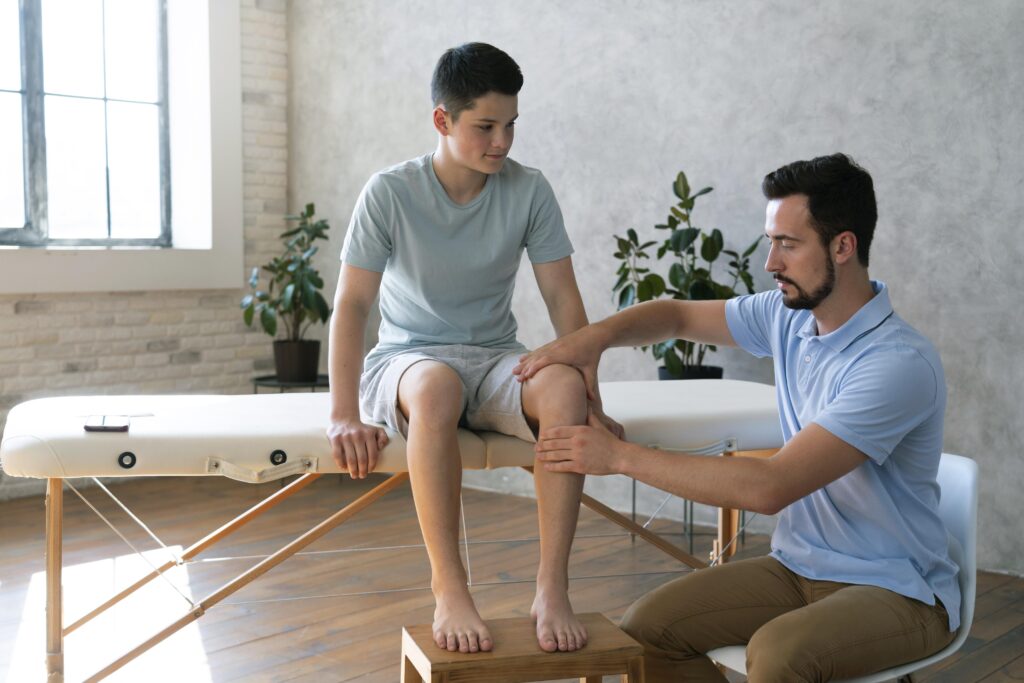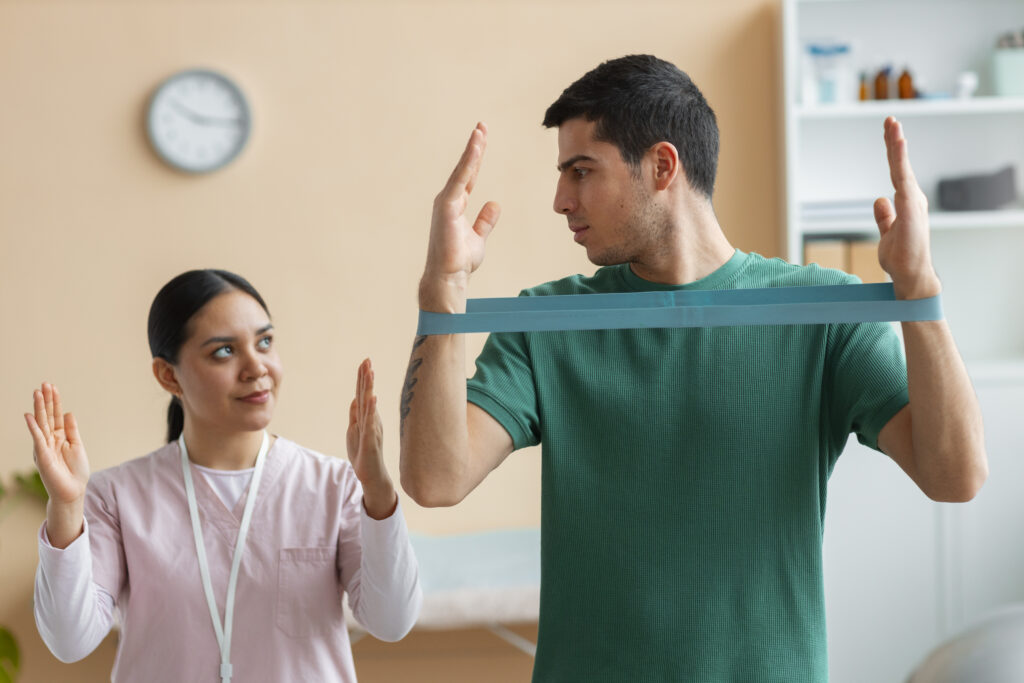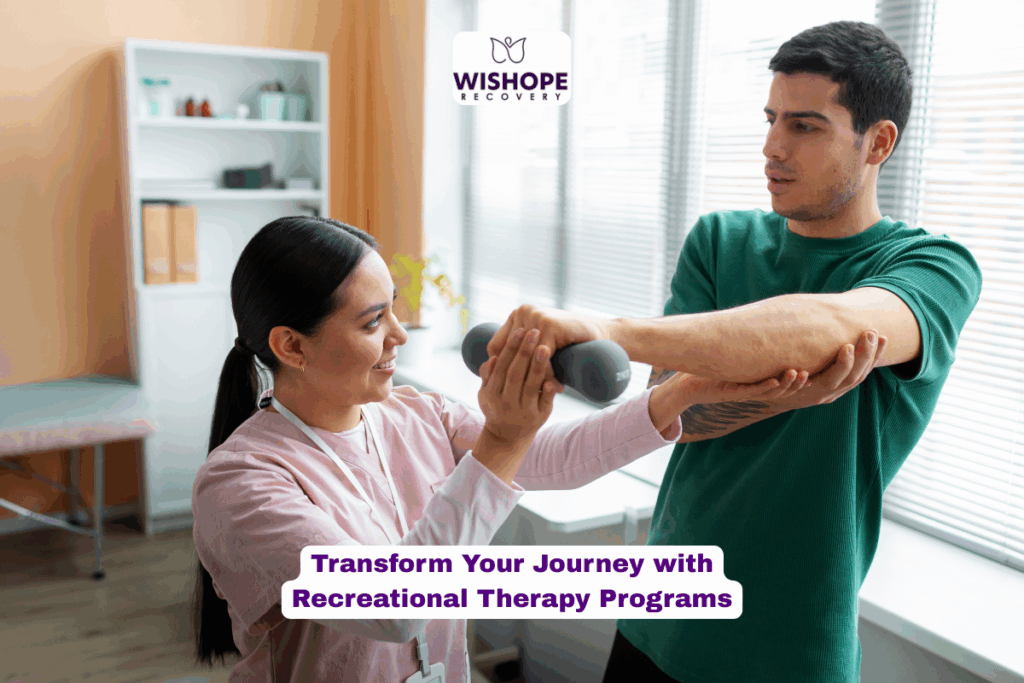What Exactly Are Recreational Therapy Programs?
Recreational therapy programs are a systematic intervention modality involving the use of fun activities to enhance health and well-being at large. Activities include art and music therapy, outdoor activities, and team sports. These are linked to quantifiable treatment goals such as decreasing anxiety levels, developing social skills, or enhancing physical fitness.
These programs are headed by Certified Therapeutic Recreation Specialists (CTRS) who have passed certain educational standards and certification by the National Council for Therapeutic Recreation Certification. Recent statistics indicate that there are about 16,600 recreational therapists who are working in the profession.

What Effect Do These Programs Have in Reducing Stress and Anxiety?
Fun activities automatically reduce the level of cortisol, the primary hormone of our body that is produced in reaction to stress. When a person engages in something that means something to him, the brain releases endorphins that generate good feelings. This is a biological reaction that overcomes the physical and emotional consequences of chronic stress.
Mindfulness-based exercises are especially useful in the reduction of anxiety. Yoga practices are a combination of exercise and breathing to relax the nervous system. Nature walks help individuals forget the stress of everyday life and indulge their senses.
Do Recreational Activities reduce the symptoms of depression?
Depression tends to lock people into the rut of inactivity and loneliness. Recreational therapy programs actively fight these tendencies by promoting participation in valuable activities. According to a study conducted in 2018, older adults indicated that they had higher self-esteem after participating in structured programs based on their interests.

Art therapy has especially strong advantages in treating depression. Most individuals can use the art of painting or sculpting to get rid of the complicated emotions that they can hardly explain using words.
Why Do Social Connections Matter in Recovery?
Isolation escalates addiction problems and mental health problems. Communication and cooperation are needed in team sports, dance classes, and group art projects. Recreational therapy can counter loneliness caused by physical constraints or mobility difficulties, especially among older adults.
Studies indicate that people exposed to early-stage dementia tend to look up to more robust social networks by engaging in recreational activities. In one of the programs that involved institutionalized elderly respondents, the extent of social engagement increased by 3.14 to 3.73 in eight weeks.
How Does Recreational Therapy Complement Traditional Treatment?
Recreational therapy programs do not substitute other evidence-based treatments, but instead complement them. Most treatment facilities combine these activities with individual psychotherapy sessions.

As an illustration, one may discuss trauma during personal therapy sessions and emotional regulation during yoga classes. The physical exercise supports the ideas mentioned in talk therapy.
Recreational therapy is becoming an essential part of the outpatient treatment programs. The participants may be taken to counseling sessions two times a week and may be placed in recreational therapy groups where they can create art, make music, or spend their time outdoors.
A study done by the Journal of Substance Abuse Treatment revealed that behavioral therapy for adults experienced low relapse rates as compared to the treatment program alone. The fun attribute of recreational activities boosts the commitment to treatment and keeps participants loyal to their recovery strategies.

Which Activities Are the Most Effective in Mental Health?
Research indicates that music therapy elevates mood, lessens anxiety, and enhances memory, which is very helpful among individuals with dementia. Participants may listen to relaxing music, compose songs about their feelings, or take up group-playing instruments.
Playing with horses, dogs, or other animals decreases stress and enhances changes in heart rate. These relationships promote accountability and effectiveness. Animal-assisted methods can be of great benefit to veterans with PTSD and children with autism.
Hiking, gardening, and bathing in forests (mindfulness in nature) improve mood and diminish symptoms of depression. Outdoor time raises the levels of vitamin D, encourages physical movement, and reduces psychological fatigue.
Physical movement exercises such as yoga, dance therapy, and swimming produce endorphins, which naturally elevate mood. The benefits of regular exercise include better body awareness, fewer PTSD symptoms, and better sleep.
How Do Creative Pursuits Support Emotional Processing?
It is not always easy to express complicated feelings with the help of words. Sculpture, painting, or creative writing can often reveal more than would be revealed during normal talk therapy.

Drama therapy is based on acting, improvisation, and role-playing as a way of exploring emotions and empathy. The practice instills trust in how to manage complex scenarios beyond the treatment context. Drama therapy is especially useful among teenagers, trauma victims, and people who experience social anxiety.
Journaling, poetry, or storytelling is a form of writing therapy that assists a person in processing and creating narratives of resilience. It often turns out that habitual journaling enhances self-knowledge and offers positive ways of dealing with anxiety.
What Role Does Physical Fitness Play in Recovery?
Recreational therapy programs that focus on movement enable individual participants to restore physical strength as they tackle emotional hurdles. According to neuroscientific research, recreational activities such as exercise and artistic expression elevate the levels of dopamine and serotonin.
Adventure therapy goes an extra mile to include outdoor adventure as a part of the physical challenge, such as rock climbing, hiking, and zip-lining. These experiences breed teamwork, develop self-esteem, and enhance problem-solving skills.
Equine therapy is used to integrate physical and emotional learning. The horses react to the slightest emotional signals, which give direct feedback concerning the emotional state of the participant.
How Do These Programs Support Addiction Recovery Specifically?
Recreational therapy is becoming vital to the success of outpatient treatment programs. The activities assist in trigger identification, developing healthy coping strategies, and the substitution of destructive actions by constructive activities.

According to a meta-analysis appearing in the Journal of Psychiatric and Mental Health Nursing, participants were found to have improved mental health significantly when they were treated in addiction treatment. Individuals involved in recreational activities exhibited lower levels of symptoms of anxiety and depression.
A study conducted at the National Center of Biotechnology Information showed that participants in recreation therapy were more dedicated to treatment plans. Those programs that include these activities report high recovery rates and higher social and physical activities.
What Makes Group Activities Particularly Valuable?
Organized play is not limited only to child development. Mental stimulation and social bonding in group therapy occur with the support of board games, team sports, and challenges to cooperate.
An intervention program with institutionalized aging participants illustrated the power of group activities. The mean level of social engagement scores improved dramatically after eight weeks, which does suggest improved relationships and less isolation.
Instead of speaking about these skills in an abstract way in behavioral therapy for adults, the participants are trained in them in real-time. Such experiential learning tends to generate more insight and learning when compared to traditional learning alone.
Conclusion
Outpatient treatment programs tend to book regular recreational therapy sessions with counseling appointments. Part of the programs need to be referred to by healthcare providers, and a lot of the community-based programs are publicly available. Accredited treatment facilities are heavily focused on all-inclusive care by The Joint Commission.
WisHope Recovery provides full recreational therapy programs, which are part of their holistic approach to treatment. The facility operates in Milwaukee, Brookfield, Waukesha, Kenosha, Madison, and other regions to provide quality care to the entire person.
Key Takeaways
- Recreational therapy involves fun-filled activities together with planned therapeutic objectives to enhance physical, emotional, and mental conditions.
- Research indicates that recreational therapy participants are less likely to relapse, have fewer anxiety and depression symptoms.
- Traditional treatment is used to supplement individual psychotherapy and behavioral therapy and treats the entire person through creative, physical, and social activities.
Frequently Asked Questions
How does recreational therapy differ from regular hobbies or leisure activities?
Although both are fun activities, recreational therapies also have certain therapeutic objectives that are prescribed by trained professionals.
Is recreational therapy useful when a person does not identify as an athlete or a creative person?
Gardening, board games, nature walks, listening to music, and interacting with animals are all good. Therapists collaborate with each individual to discover the activities that are relevant and comfortable to the person and yet provide therapeutic advantages.
How many hours does an individual spend in recreational therapy programs?
Residential treatment takes weeks, and an outpatient program takes months or years, as some individuals practice recreational therapy constantly.

